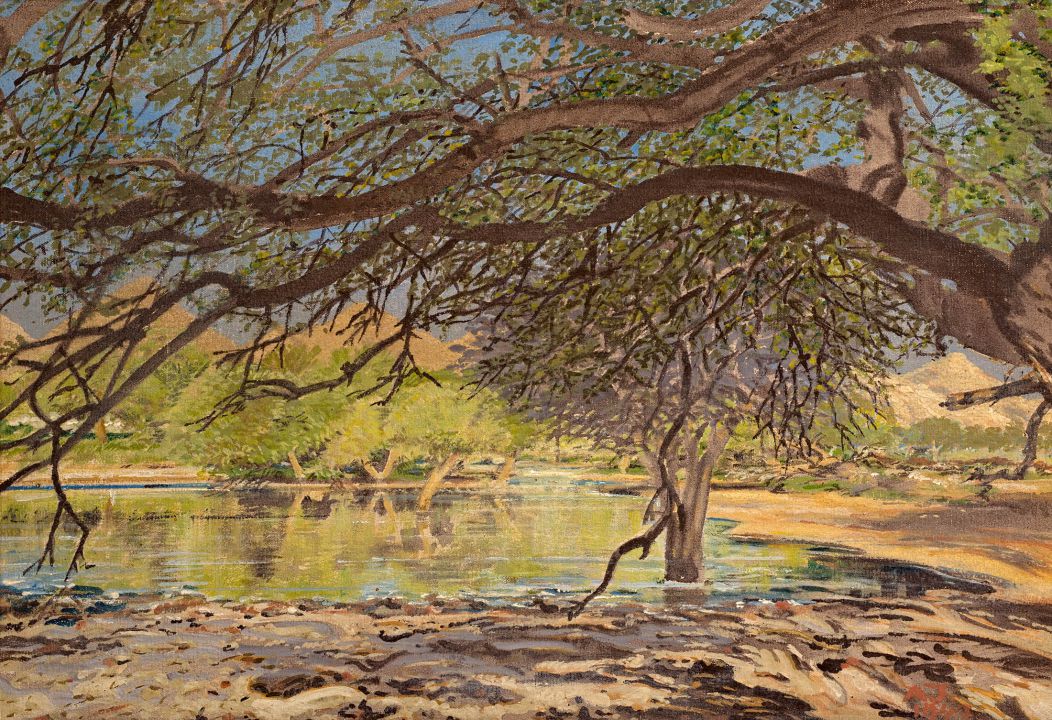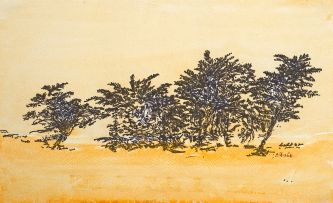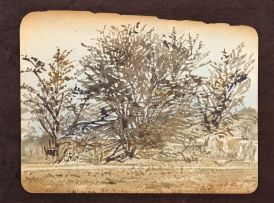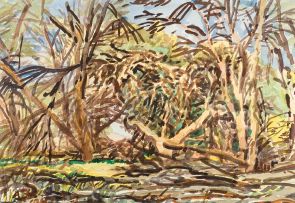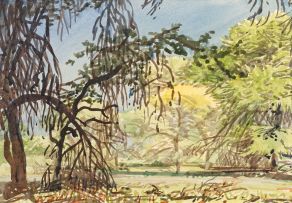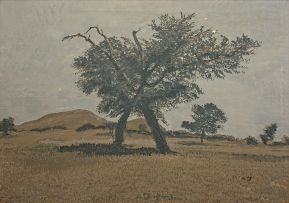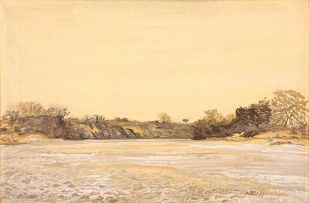Vlei on Farm Teufelsbach
Adolph Jentsch
Incl. Buyer's Premium & VAT
About this Item
signed with the artist's initials and dated 1947; signed, dated and inscribed with the artist's name and 'SW Afrika, Teufelsbach' on the stretcher; further inscribed with the title in German on two Peter and Regina Strack labels with accession number 90 and collection number 16 adhered to the reverse
Notes
Jentsch was fifty years old when he arrived in South-West Africa from Germany in 1938. He would spend the next decade of his life travelling the countryside, documenting his stays in the arid landscape in his canvasses and watercolours. As evidenced by the title of this lot, one of those stays was on Teufelsbach farm, located south-southeast of the Okahandja district and nestled on the often-dry banks of the Otjihavera river.
In the rainy season the river bed fills up and the yellow grasses become green and lush, with a variety of birdlife concentrated around the various vlei's that bubble to life along the tributaries of the river. The farm is home to a number of dams that sustain this delicate eco-system through the dry months.
Jentsch's artistic approach was to document "the landscape with its various moods" which, according to Nico Roos comes to "form the principle, continuous motif in Jentsch's oeuvre".1 Here we have a scene that is rare in the usually scorched images of the South-West African landscape. One feels the heat reflected in the cool waters of the vlei, with the slender limbs of the camel thorn tree providing a respite from the parching heat.
As an ardent practitioner of painting en plein air, (as illustrated in the accompanying photograph) Jentsch was a keen observer of the landscape which he would imbue with a philosophical resonance. "A work of art", Jentsch noted before one of his daily excursions to paint, "is a visible, painted expression of human history - even when its creator has gone back to the dust. The pleasure, the radiance of the creative force that comes alive when painting, is wonderful. The force of creation leads finally to a harmonious feeling of disintegration into the harmony of the light. This is the fulfilment of the painter".2
- Nico Roos. (1978) Art in South-West Africa, Pretoria: J.P van der Walt. Page 209.
- Olga Levinson. (1973) Adolph Jentsch, Cape Town: Human & Rousseau. Page 73.
Provenance
C H von Bach.
The Late Peter and Regina Strack Collection.
